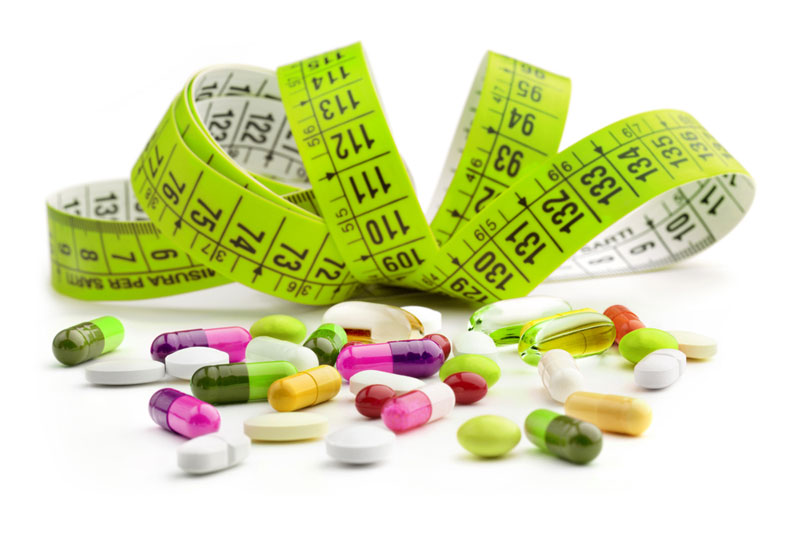Weight-Loss Supplements May Contain Banned Drug

A drug banned from competitive sports can be found at high doses in some weight-loss and workout supplements — a finding that researchers say is alarming and could potentially pose health risks.
In a new study, researchers analyzed 27 weight-loss and workout supplements now available on the market that listed an ingredient called methylsynephrine on the label. Methylsynephrine, also known as oxilofrine, is a stimulant drug approved in some countries for treating people with low blood pressure, but it is not approved for this use in the United States. The drug is not a legal supplement ingredient, either, and is banned from use in competitive sports.
The study found that 14 of the supplements (52 percent) contained methylsynephrine, and of these, close to half (43 percent) contained doses that were equal to or greater than the doses that are typically prescribed for people in places where the drug is legal.
In fact, the study found that people who followed the instructions on the supplements' labels could wind up consuming up to 75 milligrams of oxilofrine in a single serving, and up to 250 mg of the drug per day. Those doses are much greater than those prescribed by doctors in the countries where the drug is available, which go as high as 40 mg.
"We found that not only did the supplements contain the banned drug, but that they were at extremely large dosages in some of the products," said study co-author Dr. Pieter Cohen, an internist at Cambridge Health Alliance in Massachusetts. Although the researchers expected to find the drug in some of the supplements, the findings were "even more alarming" than they had predicted," Cohen said. [Weight Loss Drugs: Pros and Cons of 5 Approved Prescriptions]
The study comes just as the U.S. Food and Drug Administration announced that it had sent letters to seven supplement companies that sell products with methylsynephrine listed on the label. The letters, issued March 31, warn the companies that methylsynephrine is not a legal supplement ingredient and that products with the ingredient must be pulled from the market.
Cohen called the FDA action "a very small baby step" because his study found more than 50 supplement brands with methylsynephrine on the label, but the FDA warned just seven companies.
Get the world’s most fascinating discoveries delivered straight to your inbox.
In addition, the FDA action is late, Cohen said, because it comes years after it was widely reported that some athletes tested positive for methylsynephrine after taking dietary supplements sold in the United States. Jamaican sprinter Asafa Powell tested positive for methylsynephrine in 2013, and Brazilian cyclist Flavia Oliveira tested positive for the drug in 2009. (Both athletes said they took supplements that they did not know contained the drug.)
"The FDA has to be proactive and get out there and eliminate all of this from the marketplace," Cohen said.
Studies in people have found that methylsynephrine increases blood pressure and the volume of blood pumped by the heart.
For a person who already has high blood pressure, or who has an undetected heart condition, this extra strain on the heart could have adverse health effects, Cohen said.
What's more, many supplements with methylsynephrine also contain other stimulants. For example, one company that received a warning from the FDA had a product that contained both methylsynephrine and an ingredient called DMBA, a drug that increases blood pressure by tightening blood vessels.
When these two drugs are combined, "think about how high the blood pressure might go, especially for someone at risk [for high blood pressure]," Cohen said.
In the Netherlands, a supplement that contained methylsynephrine in combination with other stimulants was linked to adverse health effects, including rapid heart rate, chest pain and cardiac arrest. The FDA said it has received 47 reports of adverse effects linked with methylsynephrine-containing supplements, according to STAT news.
Cohen said studies have found that adverse effects linked to supplements send tens of thousands of Americans to the emergency room each year.
Follow Rachael Rettner @RachaelRettner. Follow Live Science @livescience, Facebook & Google+. Original article on Live Science.

Rachael is a Live Science contributor, and was a former channel editor and senior writer for Live Science between 2010 and 2022. She has a master's degree in journalism from New York University's Science, Health and Environmental Reporting Program. She also holds a B.S. in molecular biology and an M.S. in biology from the University of California, San Diego. Her work has appeared in Scienceline, The Washington Post and Scientific American.
 Live Science Plus
Live Science Plus





